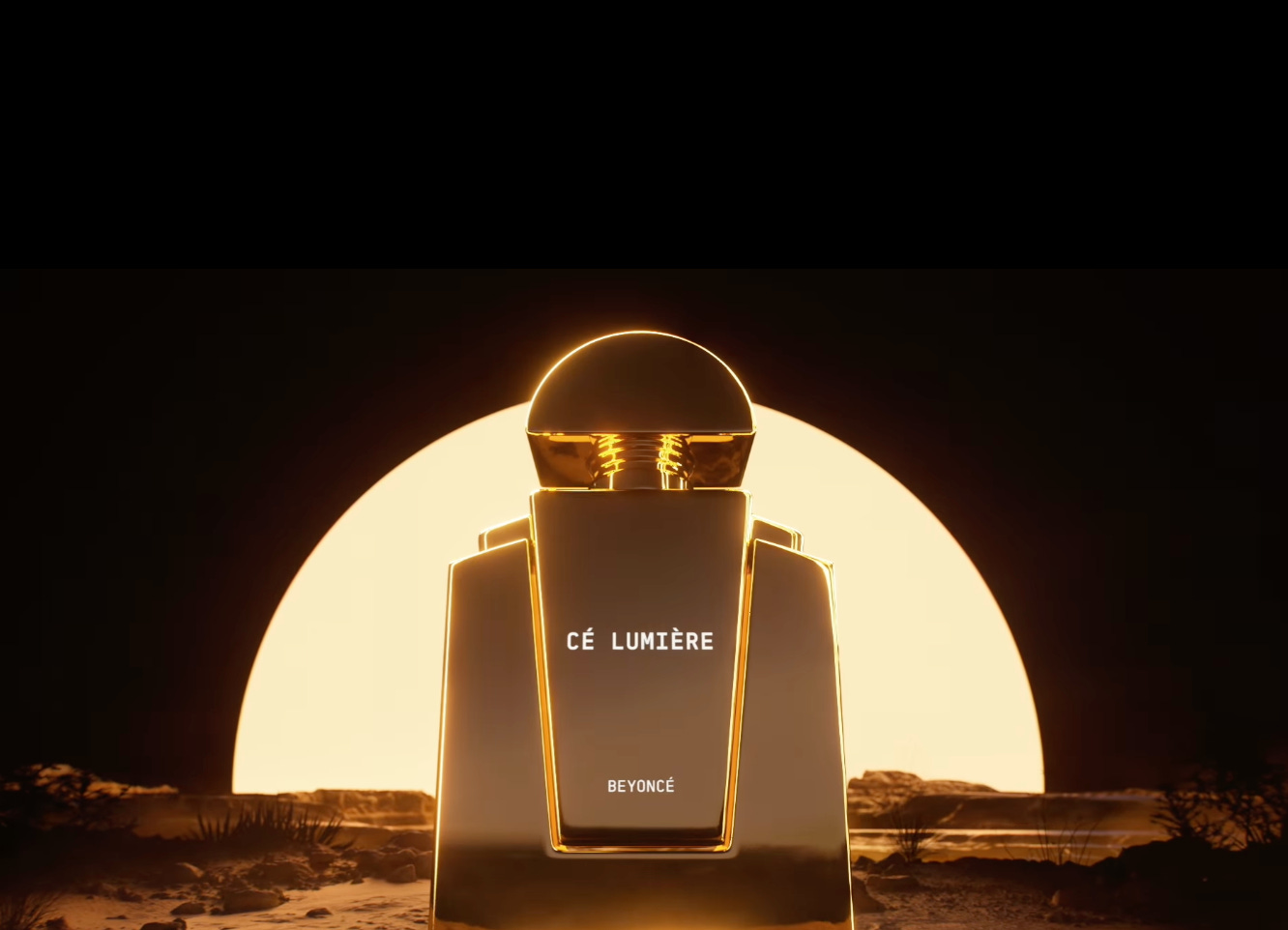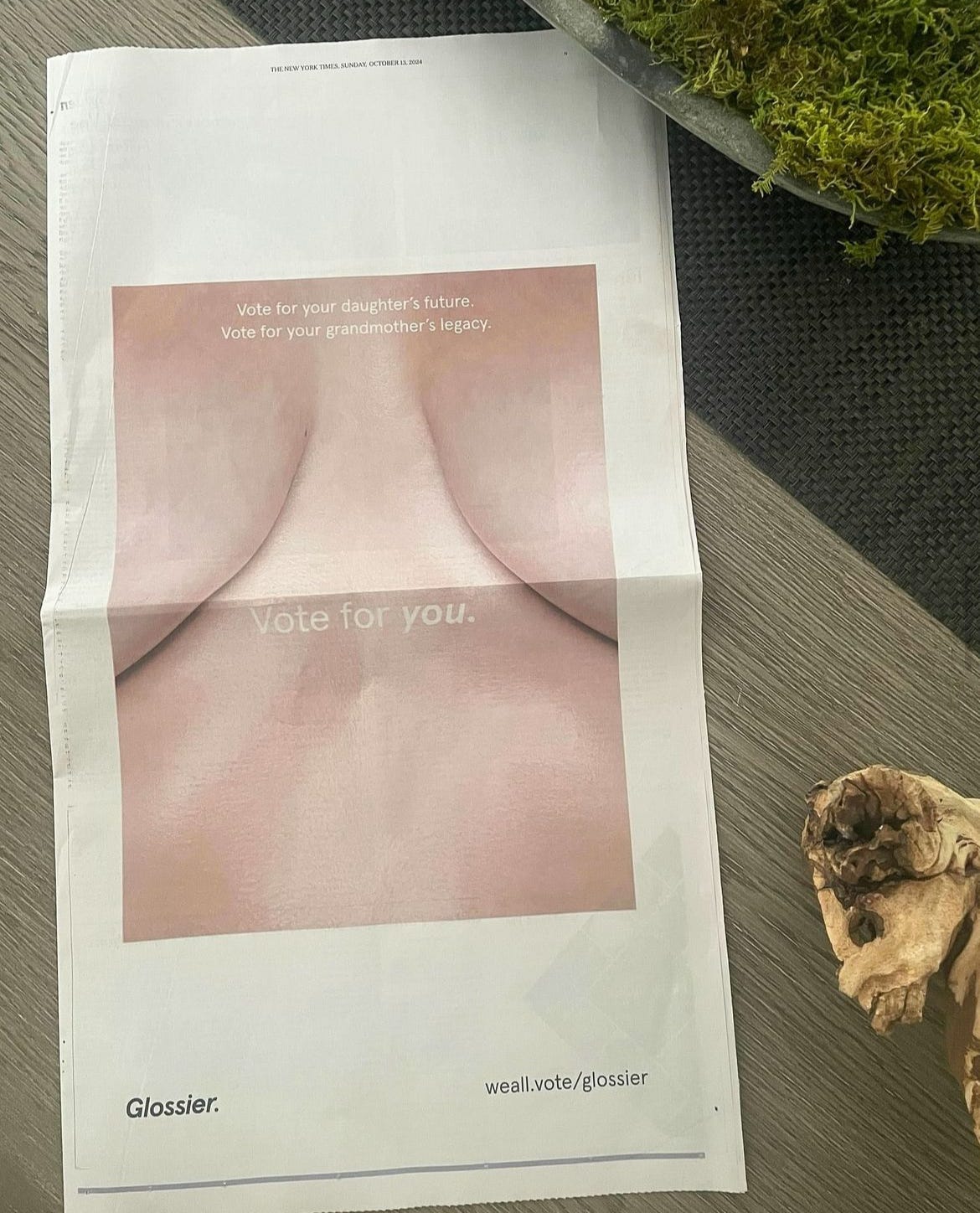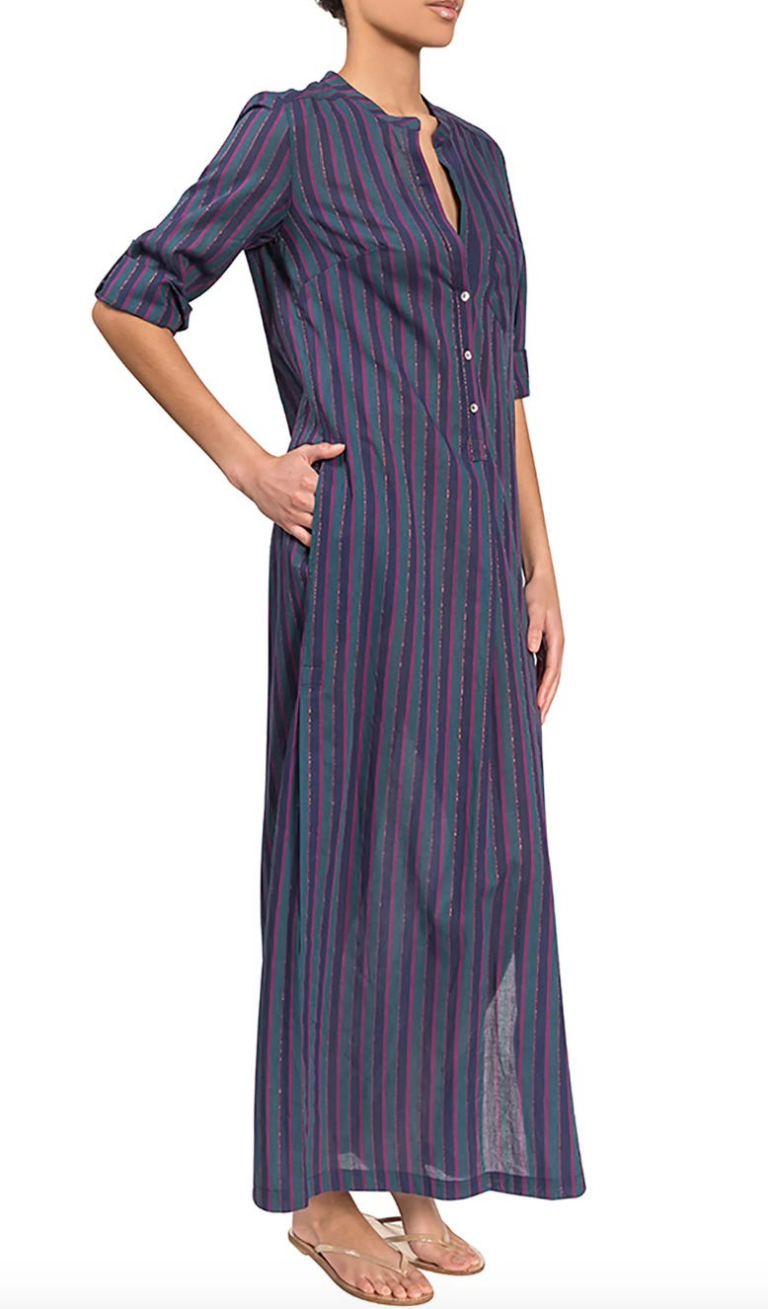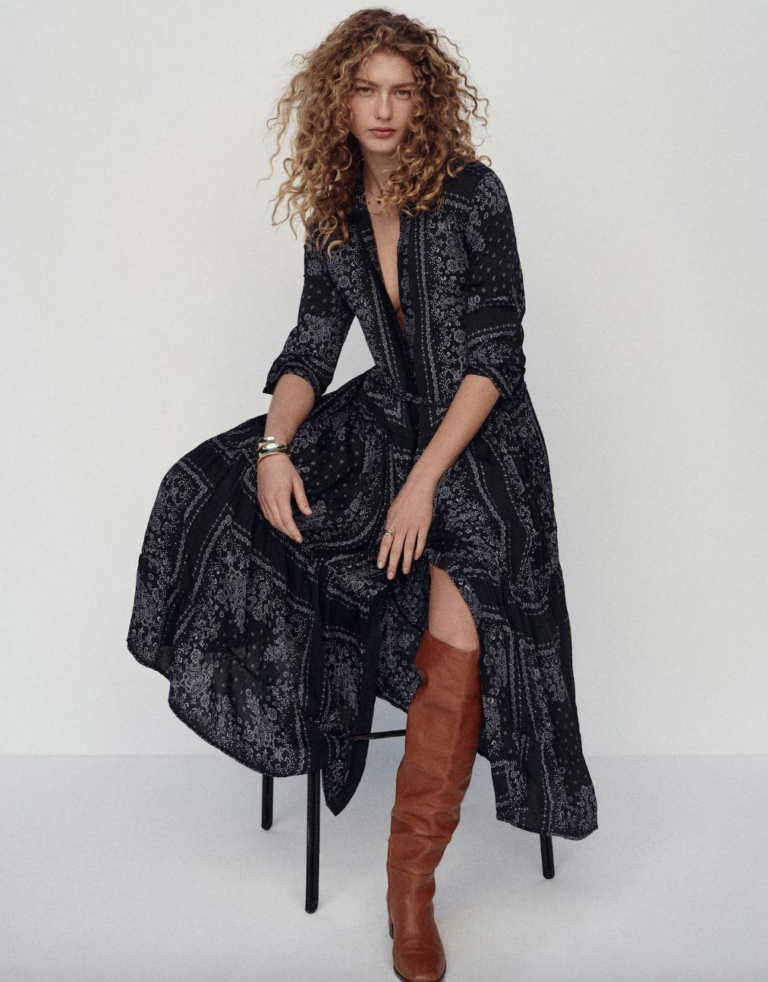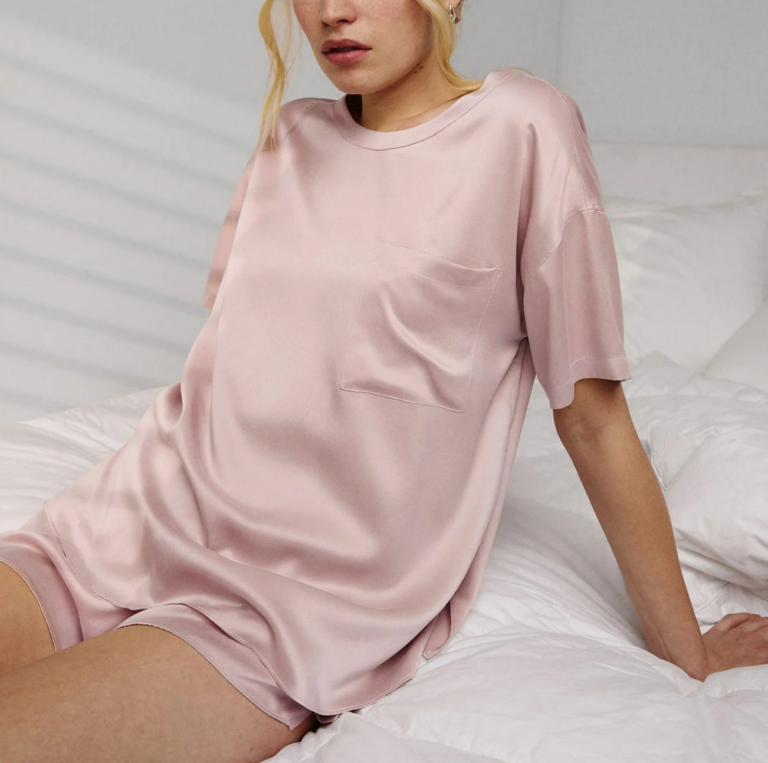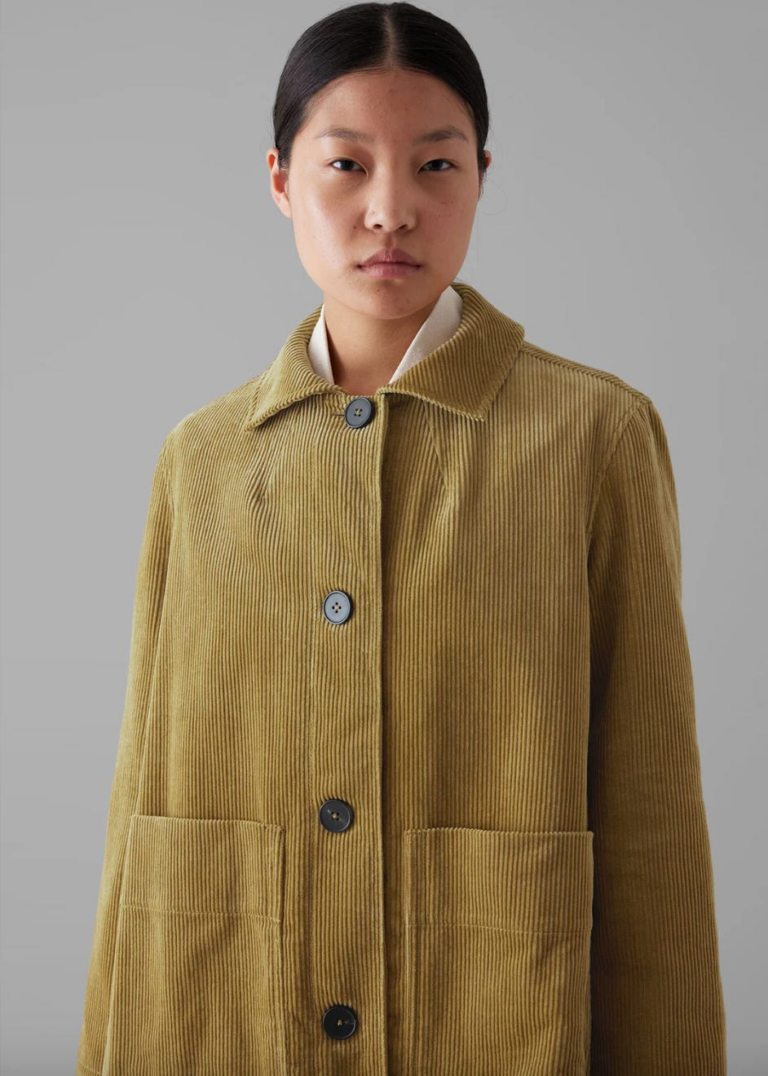An Aesthetics of Anti-Consumerism
Hello and welcome to another edition of THE DON’T BUY LIST!
E.l.f. Cosmetics collaborated with Stanley to create lip glosses shaped like mini Stanley Tumblers that clip onto the handles of full-size Stanley Tumblers to make it look as if 1) your lip gloss is gripping a Stanley Tumbler in its “hand”, just like you, or 2) your Stanley carries around lip gloss, just like you.
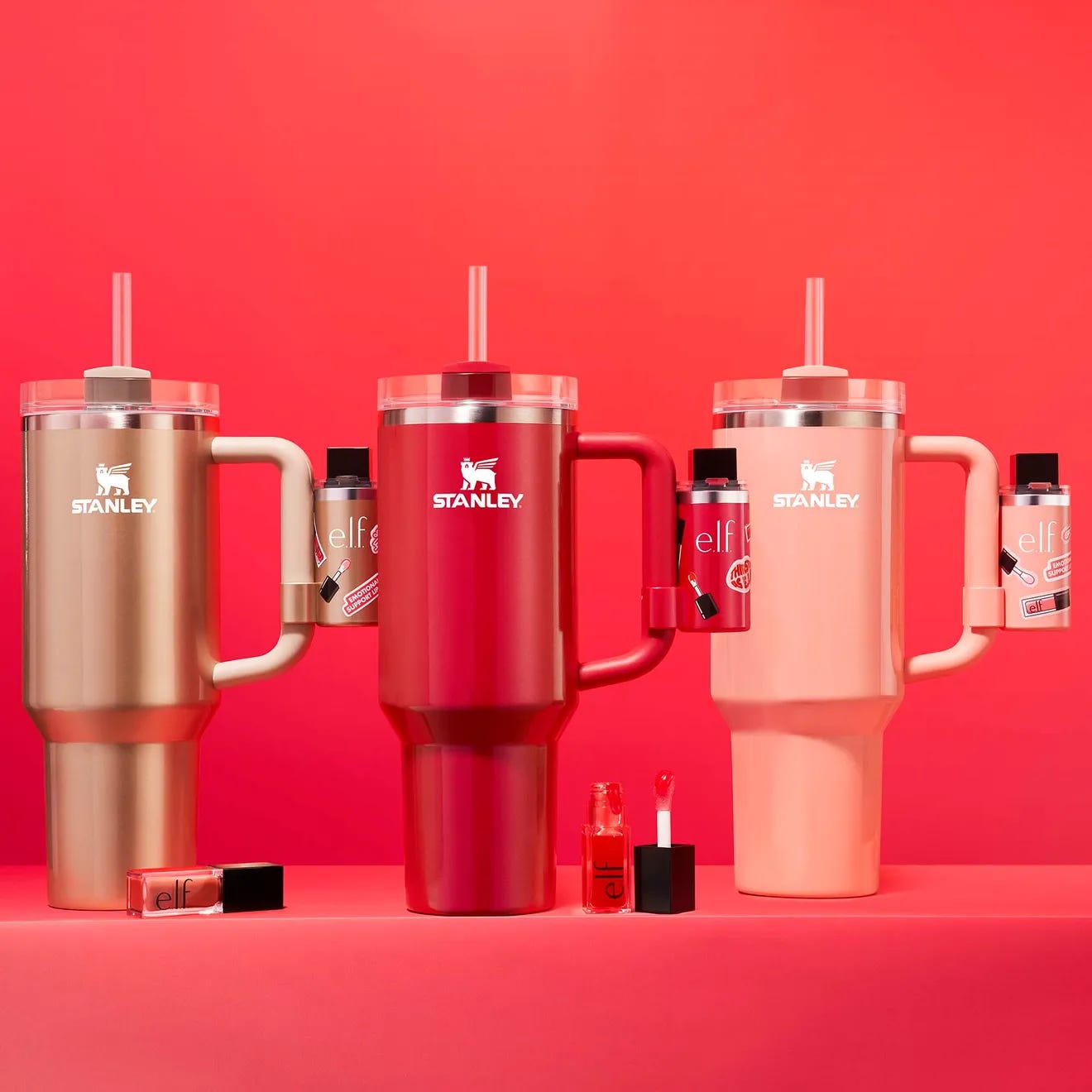
This tracks with what I’ve written before about modern objectification and the “sense of kinship with Stanley cups” that might “inspire people to dress them in little outfits.” It’s also very aligned with a 2025 trend prediction I made for a print magazine (not out yet) a couple months ago: In the coming year, treating products as pets or dolls or even extensions of the self will be commonplace. People won’t hesitate to buy phone cases for lip balms and adorn jars of eye cream with little charms and tote tubes of moisturizer around in specialized purses, furthering Western society’s personification of the inhuman and dehumanization of the person.
Anyway! Onto the links.
IN THIS ISSUE: Post-skincare sex! Sally Rooney on beauty! The mystery of itchy skin! Glossier gets political! Ingredient transparency! Beyoncé! Martha Stewart! Estrogen cream! Press-on nails! American Psycho! & more!
“Is anyone having sex after their 12-step night time skincare routine?” asks reporter Serena Smith in Dazed. I was happy to talk with Smith for the piece. She writes:
24-year-old Daisy’s extensive nighttime regimen involves applying multiple products, putting in a mouthguard, and wearing an eye mask … “There’s no moment of falling asleep together straight away in a romantic way,” she continues, adding that sticking to her routine is a “non-negotiable” as she doesn’t “wake up feeling confident” if she skips it. “By the time I’m done, my boyfriend is asleep and there is no more opportunity for cuddling.” Her boyfriend isn’t happy with the situation: “He brings it up in the morning often and we sometimes have an argument about it.”
Of course, circumstances will vary from individual to individual, and it’s impossible to straightforwardly conclude that anyone with an elaborate nighttime skincare routine is not having sex. “Sex exists outside of the ‘go to bed and turn the lights off and fuck’ clichés of Hollywood,” says beauty critic Jessica DeFino. “I think it’s a bit reductive to say that morning shedders probably aren’t having sex just because they’re covered in layers of face masks and mouth tape before bed […] Everyday sex exists outside of the bounds of looking ‘sexy’.”
Read the full thing here.
Earlier this month, Glossier took out a full-page ad in the New York Times encouraging readers to vote blue in the upcoming U.S. presidential election. “Vote for your daughter’s future,” it said. “Vote for your grandmother’s legacy.” Then, in larger font, laid over an image of a naked chest: “Vote for you.”
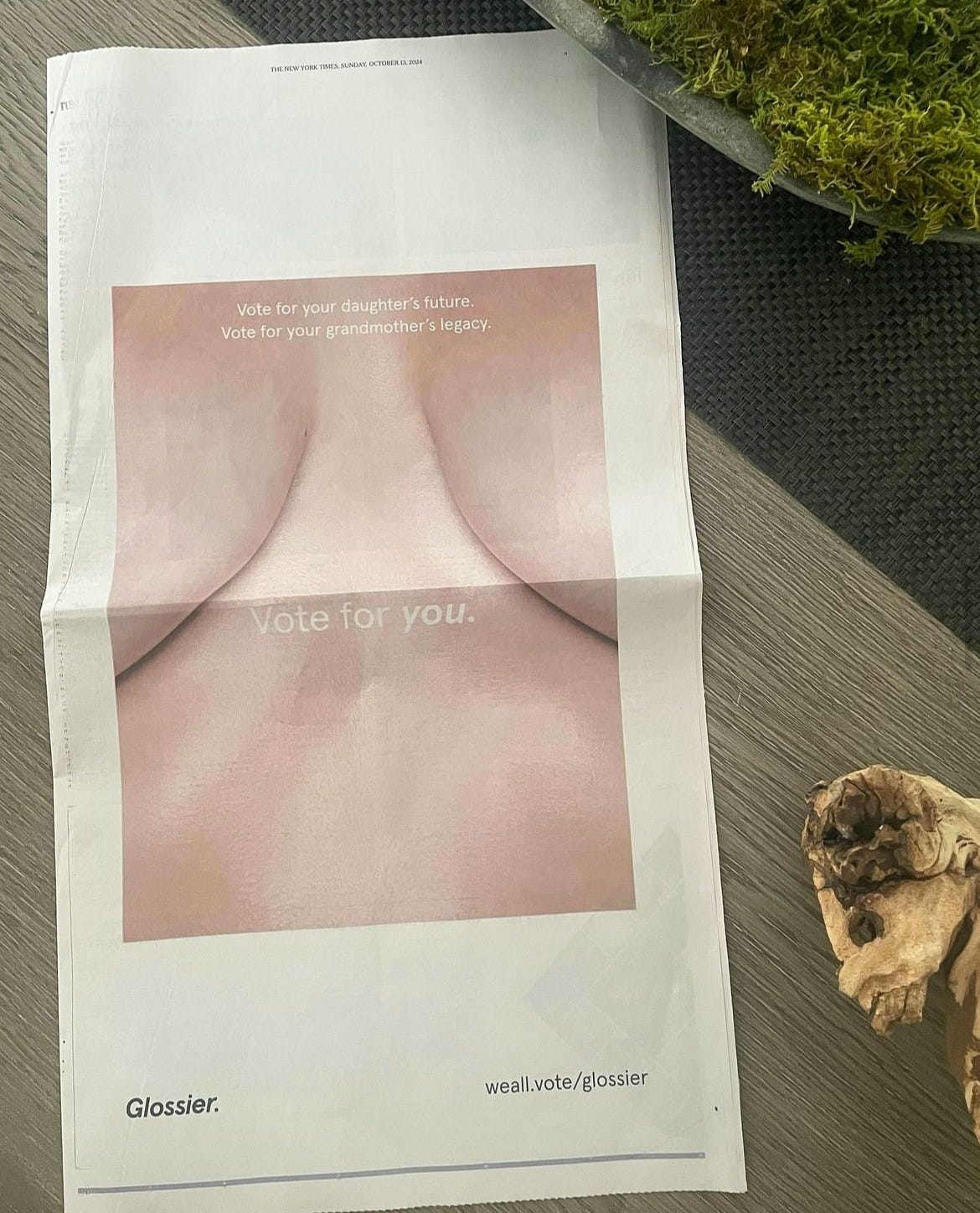
Not to diminish its political message, but… Lol this is just so clearly also an ad for Glossier’s perfume, You. The beauty brand released two new iterations of it — You Doux and You Rêve — days before the placement ran.
Related: Right after the above ad came out, I researched the political leanings of Glossier’s investors to see if the behind-the-scenes action at the company aligned with its public-facing politics. And according to data from nonprofit organization OpenSecrets, individual members and employees of Sequoia Capital, one of Glossier’s top investment firms, have donated over $300,000 to Republican candidates and organizations since 2020 — including those seeking to enact a national abortion ban. To be clear, these donations are not from Sequoia as a company. But the situation reminds me a little bit of the uproar around Ronald Lauder’s involvement in Donald Trump’s 2020 re-election campaign (on a much smaller scale). Lauder, heir to Estée Lauder Companies and a member of the corporation’s Board of Directors, donated over $1.75 million to Trump during his time on the board — and though these donations weren’t official donations from ELC as a company, customers still questioned whether to support ELC brands going forward and employees petitioned to remove Lauder from the board. Obviously, Glossier does not have control over what individual employees of the venture capital firms it’s affiliated with do with their own money! But I think it’s fair to point out that as Glossier grows, and as Sequoia’s investment appreciates, at least a portion of that profit may end up in Republican lawmakers’ hands. And those hands remain all over our bodies.
Good On You launched a beauty ratings system — a counterpart of its existing fashion ratings system — to better evaluate the sustainability, safety, and social responsibility of cosmetic companies. Its initial evaluation of 239 brands found that “90% of brands use fragrance ingredients but most — 72% — do not disclose the exact ingredients they use” and “75% of brands disclose ingredient lists online but do not provide any clear information on quantities used (ie weight, volume, or percentages).” I spoke with sustainability journalist Sophie Benson about why this matters. From her report:
One of the few journalists who has really dug into the issue, DeFino first became interested in ingredient transparency when she developed dermatitis. “I was down rabbit holes in Reddit threads and internet chat rooms, [asking] what are some of the ingredients that might be making me more sensitive? I became sort of obsessed with knowing exactly what was in my products and disappointed that, a lot of times, I couldn’t know and therefore couldn’t actually heal my skin,” she says. “To me, it seemed like an issue of not only health but autonomy and our rights as consumers.”
With regulation lacking, some retailers and brands have made their own moves. All of Credo Beauty’s 130+ brand partners answered the retailer’s 2019 request to categorise the source of their fragrance for every product (fragrance-free, essential oils, certified organic, natural, naturally derived, or synthetic) and 68% have disclosed all fragrance ingredients, showing that brands do in fact have access to this information and can share it when pushed. L’Oréal, meanwhile, states it reveals at least 95% by weight of the ingredients present in its pure fragrance.
However, voluntary disclosures remain far from the norm, with the majority of brands opting not to disclose their exact fragrance ingredients.
… DeFino sees it like this: “Brands are … very clearly saying ‘this business is more important to me than the consumer’”. And as consumers, we ought to sit up and pay attention.
Continue reading.
Beyoncé released a second fragrance, CÉ LUMIÈRE.
